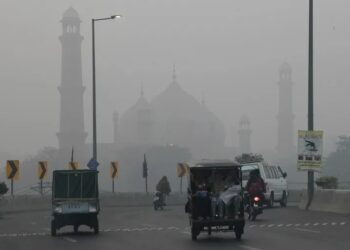Written by: Abdul Basit Alvi
The founding of the State of Israel on May 14, 1948, was a pivotal moment in world history, but it also triggered a complex series of political, military, and social conflicts that continue to shape global relations and regional dynamics today. The debate over Israel’s creation is intricate, involving a history intertwined with nationalism, imperialism, territorial disputes, and profound religious and cultural factors. To fully grasp the controversy, it is essential to explore the historical context, the events leading to Israel’s formation, and the ongoing impact on the Middle East and beyond.
The conflict that ultimately led to Israel’s creation was not a sudden event but rather stemmed from deep historical and ideological roots. One of the primary catalysts was the rise of Zionism, a Jewish nationalist movement that emerged in the late 19th century, advocating for the establishment of a Jewish homeland in Palestine. This movement was driven by increasing anti-Semitism in Europe and the desire to create a sanctuary for Jews who faced persecution, particularly in Eastern Europe and Russia. Zionism was initiated by Theodor Herzl, who argued that Jews needed their own state to escape the discrimination they encountered in Europe. Herzl and other Zionist leaders chose Palestine as the location for this homeland due to its historical and religious significance to the Jewish people. However, the region they aimed to settle was already home to a large Arab population, most of whom identified as Palestinians and had their own nationalist aspirations. By the early 20th century, the Palestinian Arab population began to develop a national consciousness, spurred by resistance to both Ottoman and later British rule, as well as a desire for independence.
The situation took a critical turn during World War I, when the Ottoman Empire, which had controlled Palestine for centuries, aligned with the Central Powers. As the Allies, particularly Britain and France, fought against the Ottomans, British officials began to take a stronger interest in Palestine’s future. In 1917, British Foreign Secretary Arthur Balfour issued the Balfour Declaration, expressing British support for the creation of a “national home for the Jewish people” in Palestine. This declaration was made without consulting the Arab population, leading to a sense of betrayal among Palestinian Arabs. Simultaneously, Britain had promised Arab leaders support for an independent Arab state in the region, further complicating the situation. These conflicting commitments fueled resentment and distrust between the Arab and Jewish communities in Palestine.
After World War I and the collapse of the Ottoman Empire, Palestine came under British control as part of the League of Nations mandate system. This marked the beginning of a significant increase in Jewish immigration to Palestine, driven by rising anti-Semitism in Europe and the ongoing appeal of Zionism. Jewish settlers established kibbutzim (communal farms) and began building the infrastructure for a future Israeli state. As Jewish immigration grew, tensions between Jews and Arabs escalated. Palestinian Arabs, fearing they would become a minority in their own land, began to resist the influx of Jewish settlers, leading to violent confrontations such as the Arab Revolt of 1936-1939, which was a response to both British rule and Jewish immigration.
The rise of Nazi Germany and the Holocaust during World War II had a profound effect on the Jewish community and the Zionist movement. The murder of six million Jews during the Holocaust underscored the urgent need for a Jewish state as a refuge for survivors and as a safeguard for Jews worldwide. In the aftermath of the Holocaust’s devastating impact, Zionist leaders urged the British government to allow more Jewish immigrants into Palestine. However, the British, already grappling with significant resistance from Palestinian Arabs and an escalating violent conflict in the region, sought to restrict Jewish immigration. This decision only intensified tensions between the Jewish and Arab communities in Palestine, with both sides resorting to violence in pursuit of their political objectives. By the end of World War II, Britain was worn out by the ongoing unrest in Palestine and sought to withdraw from the region. In 1947, Britain handed the issue over to the newly formed United Nations (UN), which proposed a solution known as the UN Partition Plan. This plan called for Palestine to be divided into two states: one for the Jewish population and one for the Arab population, with Jerusalem placed under UN administration as an international city. The Jewish leadership, represented by David Ben-Gurion and the Jewish Agency, accepted the UN Partition Plan, viewing it as a historic opportunity to establish a Jewish state. Although there were concerns about the borders and territorial distribution, the Jewish community largely supported the plan. In contrast, the Palestinian Arab leadership and most Arab nations rejected the partition. They argued that it was unjust to divide the land and create a Jewish state in a region where Arabs constituted the majority of the population. The Arab League also vowed to oppose the creation of Israel by force, leading to an escalation of violence.
On May 14, 1948, with the expiration of the British mandate, David Ben-Gurion declared the establishment of the State of Israel. This declaration was immediately recognized by the United States, the Soviet Union, and several other countries. However, neighboring Arab states, including Egypt, Jordan, Iraq, and Syria, declared war on the newly established state, initiating the 1948 Arab-Israeli War. Israel emerged victorious, not only surviving but expanding its territory beyond the boundaries set by the UN Partition Plan. By the time a ceasefire was reached in 1949, Israel controlled much of the land that was intended for the Arab state, including parts of Jerusalem.
For Palestinians, the war marked the beginning of the Nakba, or “catastrophe,” as over 700,000 Palestinian Arabs were displaced or fled their homes during the conflict. These refugees became a central issue in the ongoing Israeli-Palestinian conflict. The creation of Israel in 1948 is seen by many Jews as the realization of a long-awaited return to their historic homeland and a necessary refuge from centuries of persecution. For Palestinians and the broader Arab world, however, Israel’s creation represents the forced displacement and disenfranchisement of the Arab population of Palestine. The controversy surrounding Israel’s formation remains deeply entrenched both in the region and globally. The aftermath of the 1948 war and the establishment of Israel continues to impact the Israeli-Palestinian conflict, fueling disputes over territory, the status of refugees, and competing national narratives.
For Israel, its creation marked the fulfillment of a long-held aspiration for Jewish sovereignty and security. For Palestinians, it remains a symbol of lost land, identity, and dignity. Both sides continue to grapple with these conflicting historical perspectives, and the debate over Israel’s legitimacy and Palestinian rights remains a major issue in international diplomacy.
Since its founding, Israel has been involved in numerous military operations, occupations, and settlement activities that have contributed to ongoing violence and human rights violations against Palestinians. The occupation of Palestinian territories, particularly the West Bank and Gaza Strip, and the expansion of Israeli settlements have been at the heart of these abuses. Israel has maintained military control over the West Bank and Gaza Strip since 1967. Despite multiple international resolutions demanding Israeli withdrawal, the expansion of settlements in the West Bank continues, with these settlements regarded as illegal under international law. Israel has systematically built these settlements, often displacing Palestinian communities in the process. The establishment of settlements, along with the building of the contentious separation wall, has divided Palestinian territories and restricted the movement of Palestinians. Israel has carried out several military operations in the Gaza Strip, many of which have led to significant civilian casualties. Operations in 2008, 2012, 2014, and 2021, in particular, have been criticized for their disproportionate use of force, resulting in the deaths or injuries of many Palestinian civilians, including women and children. Since 2007, Israel’s blockade of Gaza has created severe humanitarian conditions, with shortages of essential goods like food, medicine, and clean water, leaving over 2 million Palestinians in what is often described as the world’s largest open-air prison. Israel has faced widespread criticism for its treatment of Palestinian prisoners. Thousands of Palestinians, including minors, have been arrested and detained without trial in Israeli military prisons, where human rights organizations have documented reports of torture, ill-treatment, and inhumane conditions. Administrative detention, which allows Israel to detain individuals without charge or trial for extended periods, has been a key aspect of its repression of Palestinians.
Since Hamas took control of Gaza in 2006, Israel has imposed a strict economic blockade, severely limiting the movement of people and goods in and out of Gaza. This blockade has contributed to a humanitarian crisis, worsened by repeated Israeli airstrikes and bombardments. Combined with restrictions on electricity, water, and medical supplies, the blockade has had a devastating impact on Gaza’s civilian population.
Israeli settlers in the West Bank also often engage in violent attacks against Palestinians, including property destruction, physical assaults, and killings, with tacit support or indifference from the Israeli military and government. These incidents of settler violence have escalated in recent years, and many Palestinians live in constant fear of these attacks, which often go unpunished.
In addition to its treatment of Palestinians, Israel has demonstrated aggressive behavior toward neighboring countries. After declaring independence in 1948, Israel was immediately attacked by neighboring Arab states—Egypt, Jordan, Syria, Iraq, and Lebanon. Israel emerged victorious, expanding its territory, but the war resulted in the displacement of around 750,000 Palestinians, a key event in the Palestinian narrative of dispossession.
In 1967, Israel launched a preemptive strike against Egypt, Jordan, and Syria, leading to the occupation of the Sinai Peninsula, the West Bank, East Jerusalem, and the Golan Heights. The war resulted in further Palestinian displacement and solidified Israeli control over large territories. Despite this, Israel has not returned the occupied lands, which remain a source of tension.
Israel’s 1982 invasion of Lebanon aimed to expel the Palestine Liberation Organization (PLO) from southern Lebanon. This led to widespread destruction and loss of life, with Israeli forces and their Lebanese Christian allies implicated in the massacre of Palestinian refugees at the Sabra and Shatila camps, drawing international condemnation.
Israel’s repeated military operations in Gaza, including Cast Lead (2008), Pillar of Defense (2012), Protective Edge (2014), and Guardian of the Walls (2021), have been viewed as acts of aggression not just against Palestinians but also against regional stability. While Israel justifies these operations as self-defense against Hamas rocket fire, the scale of destruction and the civilian toll in Gaza has led to widespread international calls for accountability and an end to the blockade.
Israel’s control of the Golan Heights, seized from Syria in the 1967 Six-Day War, remains a point of contention. Despite calls for Israel to return the territory, it remains under Israeli control, with ongoing tensions, particularly regarding Israeli airstrikes on Iranian and Hezbollah positions in Syria. The international community remains divided on the Israeli-Palestinian conflict, with differing views on these issues. Despite widespread condemnation of Israel’s military actions and human rights violations, particularly in Gaza and the West Bank, attempts to hold Israel accountable have largely stalled due to the influence of powerful allies such as the United States. U.N. resolutions and international legal rulings have been largely disregarded by Israel, and the international community’s response has often been inconsistent. Human rights organizations, including Human Rights Watch and Amnesty International, have accused Israel of committing war crimes and crimes against humanity, particularly in relation to its treatment of Palestinians under occupation and its military operations in Gaza. The push for a two-state solution, although still supported by many, has lost momentum as Israel’s settlement expansion continues without restraint and Palestinians face escalating oppression.
The idea of a “Greater Israel” is one of the most contentious and debated concepts within Israeli politics and the broader Middle East conflict. Rooted in religious, historical, and political ideologies, the “Greater Israel” vision advocates for an expanded Israeli state that encompasses large portions of land in the West Bank, Gaza Strip, and even parts of neighboring countries such as Lebanon, Syria, and Jordan. Although this vision has not been officially endorsed by the Israeli government, it has significantly influenced Israeli politics, military strategies, and policies in the region.
Recently, Israel published a map of ‘Greater Israel’ on its official social media platforms in Arabic, asserting historical territorial claims over lands in several Arab nations. The publication of this map has been widely criticized across the Arab world. Gulf countries, including Qatar, the United Arab Emirates, and Saudi Arabia, have strongly condemned the map, which claims “historic territorial rights” over Palestine, Jordan, Lebanon, and Syria. The release of the map coincides with statements from hard-line Israeli ministers advocating for the full re-occupation of Palestinian territories in the West Bank and the rebuilding of Israeli settlements in the Gaza Strip. In March 2023, far-right Israeli Finance Minister Bezalel Smotrich was photographed standing next to a map of “Greater Israel” that included Jordan as part of Israel during a speech in Paris. The publication of this controversial map has sparked widespread backlash, with several Arab nations calling on the international community to intervene and stop Israeli violations against the region’s countries and peoples.
The timing of the publication has surprised many, particularly as Syria faces significant instability, leaving no major military power in the immediate vicinity of Israel. This situation emphasizes the need for strong countries and military forces as a safeguard against external threats.
This situation draws a parallel to Pakistan’s defense needs. Without a strong military, Pakistan would struggle to maintain its sovereignty in the face of both internal and external challenges, particularly with the presence of formidable adversaries. The emergence of the “Greater Israel” map amidst a region of weakened Arab countries and military forces serves as a clear reminder of the importance of military strength, a message that resonates with Pakistan’s own security priorities.
As a country strategically positioned in South Asia, Pakistan faces a complex security environment, including volatile regional dynamics, internal issues, and shifting global geopolitics. Consequently, Pakistan’s military has always been a crucial component of its national security. Given the evolving nature of both traditional and non-traditional security threats, it is increasingly essential for Pakistan to allocate substantial resources to its military. While military spending remains a contentious topic, it is vital for Pakistan to ensure its defense, sovereignty, and stability. Pakistan’s substantial military expenditure is primarily driven by its sensitive geopolitical position, sharing borders with multiple nations, each with its own security concerns that directly affect Pakistan. The most significant threat to Pakistan comes from its eastern neighbor, India. Since their independence in 1947, the two countries have fought multiple wars, with the ongoing dispute over the Kashmir region remaining a major point of tension. India, with its significantly larger economy and military, continues to modernize its defense forces, which compels Pakistan to enhance its own military capabilities in order to maintain strategic parity. Furthermore, Pakistan’s western border with Afghanistan has been a source of instability, particularly given the ongoing conflict and the rise of terrorism and militancy in the region. The Taliban’s return to power in Afghanistan has further complicated Pakistan’s security situation, as militant groups frequently cross the porous border, creating security challenges, particularly in Pakistan’s tribal areas. As a result, substantial military spending is essential to strengthen border security and address internal insurgencies that threaten national peace and stability. Additionally, Pakistan’s long-standing alliance with the United States, along with its growing partnership with China, requires maintaining military capabilities to protect its interests and navigate the shifting dynamics of global power. Specifically, the China-Pakistan Economic Corridor (CPEC), a multibillion-dollar infrastructure project, needs robust security to safeguard both the investment and the trade routes. A capable military is critical for the successful implementation of such projects, which are crucial for Pakistan’s long-term economic growth.
Since acquiring nuclear weapons in 1998, Pakistan has relied on its nuclear deterrent as a central component of its defense strategy. However, maintaining and modernizing its nuclear arsenal is an expensive endeavor. To ensure that its nuclear capabilities remain credible and effective, Pakistan must invest heavily in its defense infrastructure, including missile systems, surveillance, and command-and-control systems. The evolution of technological warfare, such as cyber threats and advanced missile technology, requires Pakistan to constantly update and modernize its military capabilities to maintain deterrence. Substantial military spending is also directed toward sustaining conventional forces that can respond to regional conflicts. While nuclear weapons provide strategic deterrence, conventional military forces are vital for the immediate defense of the country in the event of conventional warfare. A modernized army, air force, and navy, combined with cutting-edge defense technology, ensure that Pakistan is prepared to effectively counter any threats, both nuclear and conventional, from regional adversaries.
In addition to external threats, Pakistan faces significant internal security challenges. The rise of terrorism, particularly from groups like Tehrik-i-Taliban Pakistan (TTP) and various sectarian militias, has placed considerable strain on the country’s security forces. Over the years, Pakistan’s military has been heavily involved in counterterrorism operations aimed at dismantling militant groups that threaten the state’s stability. To effectively combat terrorism, Pakistan’s military requires substantial resources for intelligence gathering, surveillance, special operations, and the upkeep of its counterterrorism infrastructure. Operations like Zarb-e-Azb and Radd-ul-Fasaad, which targeted militant hideouts in urban and rural areas, were successful due to well-funded and coordinated military efforts. These operations not only targeted terrorist organizations but also contributed to improving internal stability, which is essential for long-term peace.
Beyond counterterrorism, Pakistan must also address sectarian violence and separatist movements, particularly in regions like Balochistan. The military’s role in maintaining law and order in these areas and countering insurgencies demands ongoing investment in personnel, equipment, and logistics. Modern warfare has been drastically transformed by technological advancements, including cyber warfare, unmanned aerial vehicles (drones), artificial intelligence, and advanced missile systems. To keep pace with these advancements, Pakistan needs to make significant investments in defense research and development. This approach not only strengthens military capabilities but also promotes domestic defense production, thereby decreasing dependence on foreign suppliers. Investments in technology are essential for strengthening Pakistan’s defense, whether through upgrading radar systems, improving cybersecurity defenses, developing autonomous military systems, or acquiring more advanced weaponry. A robust technological base enables Pakistan to develop indigenous defense products, reducing reliance on foreign arms imports while fostering national pride and economic growth. Although critics often highlight the high costs of military spending, Pakistan must recognize that defense expenditure is not just an expense but an investment in the nation’s long-term security. A stable and secure environment is essential for economic growth, attracting foreign investment, and promoting trade. A strong military presence ensures the protection of vital infrastructure, such as ports, highways, and energy pipelines, and instills the confidence necessary for long-term economic planning. Additionally, Pakistan’s defense industry plays a significant role in the country’s economy, providing jobs, supporting local industries, and contributing to advancements in science and technology. By investing in defense, Pakistan can strengthen its industrial base, foster innovation, and generate employment opportunities, thereby promoting national economic growth.
Military spending is not just a matter of national pride but a critical necessity for Pakistan’s survival and stability. Given the external threats, internal security challenges, and the rapidly evolving nature of global warfare, Pakistan’s military must be well-equipped and modernized to effectively protect the nation’s interests. Defense spending is crucial to ensuring national security, maintaining strategic deterrence, and addressing both conventional and non-conventional threats. It is clear that investing in defense is an investment in the nation’s future. Pakistan’s survival, sovereignty, and security depend on its ability to maintain a formidable and modern military, capable of addressing any challenges that may arise. The people of Pakistan stand with the country and its military, rejecting all efforts by enemies and anti-state elements to weaken the nation and its defense forces.

























